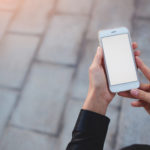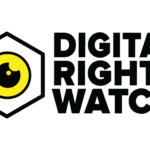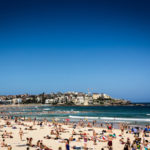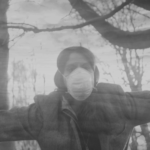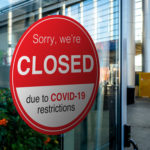Do Not Trust the PM’s Promises Regarding the COVID-19 Tracking Data
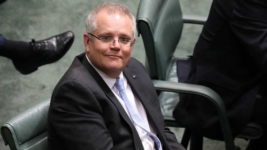
No matter which side of the political divide they fall on, what sort of creed they adhere to, or whether they’re law-abiding citizens or not, the overwhelming majority of Australians have followed government advice and locked down for the COVID-19 pandemic.
And as we all know, it has been no small ask.
Now PM Scott Morrison has suggested a solution: a phone tracing app that records social graph data. It’s supposed to allow us all to step out of our isolation bubbles. However, most Australians aren’t taking it up due to a lack of trust when it comes to government and our data and privacy.
The COVIDSafe app was launched on 26 April. It stores the details of people a user comes into contact with and alerts them if one of these contacts is subsequently diagnosed with the virus. The app is based on a similar such application being used in Singapore during the pandemic.
So far, 5.1 million Australians or around 20 percent have downloaded it. The government has advised that at least 40 percent of the nation need to do so for it to be effective. And it’s relying on the public for this outcome, as early murmurs about mandatory participation were quickly reined in.
The numerous data protection assurances made to the public show that the government is keenly aware of the lack of trust in it. And now AFTINET has shown these hesitations are somewhat justified if you consider what else the government’s been up to with Singapore over the last half year.
Conflicting positions
Negotiations on the revised Australia-Singapore Digital Economy Agreement (DEA) came to an end on 23 March. Involving a chapter of the Australia-Singapore Free Trade Agreement, the updated DEA seeks to modernise digital economy trade rules between the two countries.
But, while the details of the document won’t be released to the public until it’s been signed off on, the Department of Foreign Affairs and Trade has published a summary of the Australia-Singapore DEA key outcomes on its website.
And as AFTINET (Australian Fair Trade and Investment Network) convenor Dr Patricia Ranald points out, the two most prominent outcomes that our nation and Singapore have agreed to are the exact measures that the government has guaranteed won’t apply when it comes to the COVIDSafe app.
Morrison has repeatedly assured the public that app data will be stored in Australia, and the source code will be released for the public to scrutinise. However, the Singapore DEA aims to open up the free flow of data across borders and eradicate any requirement to release source codes.
“We’re pointing out the contradiction between those two principles and saying that the Singapore agreement will have to be changed if this is going to be required for the app,” Dr Ranald told Sydney Criminal Lawyers.
Extinguishing privacy
A COVID-19 app directive released by health minister Greg Hunt on 25 April ensures that pandemic-related data will be stored in Australia, while government services minister Stuart Robert has stated that the source code will soon be released.
The Australia-Singapore DEA “summary says that generally the framework of the agreement is to allow free flows of data across borders and no requirements to store data locally,” Dr Ranald continued, “and that companies cannot be required to reveal source codes.”
The academic further explains that the DEA “is based on an agenda being pushed heavily by global tech companies and others that use a lot of data”. She added that from “their point of view, they just want free data, and they don’t want to have to expose their source code for scrutiny”.
A source code is the information that a digital program runs on. According to Dr Ranald, digital rights groups want transparency around these codes as they can contain biases. It’s been well documented that facial recognition technology can contain racial or gender bias.
So, this scenario reveals that the Morrison government wants to crank up the economy mid-pandemic. Therefore, it’s calling on the public to overlook its mistrust and download a data collecting app, accompanied by a set of guarantees that it knows are important to the public.
Yet, for a six month period ending at the time the COVID-19 restrictions began to come into play, this same government had been negotiating an agreement behind closed doors that would open up the Australian public to the very same measures it’s being promised protection against at present.
On behalf of the corporates
“Australia is also participating in a broader set of negotiations that deal with e-commerce and digital trade at the World Trade Organisation,” Dr Ranald said, adding that the agreement only involves 76 developed nations out of the total 164 WTO member states.
And it’s this WTO plurilateral agreement coupled with the Australia-Singapore DEA that the big tech companies, such as Google and Facebook, have got their eyes on. The success of the DEA will have implications as to what can be included in the global WTO agreement.
Dr Ranald outlined that the current WTO negotiations involve less than half of all member nations, because the opening up of their economies to unregulated Big Tech business isn’t so appealing to countries of the Global South that haven’t had a chance to establish their own digital markets yet.
“This kind of deregulated framework advantages existing big tech companies globally. It is their agenda. They want to be able to expand their trade,” Dr Ranald made clear.
“From a developing country’s point of view, they might want to have more regulatory frameworks – including local storage of data – in order to develop their own digital industries.”
Janus in the chamber
Of course, when it comes to the COVID-19 pandemic, trying to make a solid assumption as to how it will pan out is about as reliable as the guarantees the federal government can make in relation to our privacy.
The Morrison government is supposedly turning to the app based on the success of Singapore’s pandemic approach. However, since that initial decision, that nation has become the coronavirus basket case of Southeast Asia, as local authorities neglected to support and help migrant workers.
The public scepticism in relation to the app seems to point to fears that the government either wants to collect our data for its own purposes, or it won’t be able to control who gets their hands on it, once the information is in its possession.
Aside from the inconsistencies in the government’s stance regarding the COVIDSafe app on the one hand, and the Singapore DEA on the other, Dr Ranald also points to the findings of the Australian Competition and Consumer Commission (ACCC) digital platforms report released last June.
“The ACCC report said we need more regulation of these big companies, not less,” Dr Ranald concluded. “The commission was concerned about a whole slew of issues to do with the domination of Big Tech, problems with data privacy, data abuse and anti-competitive practices.”



